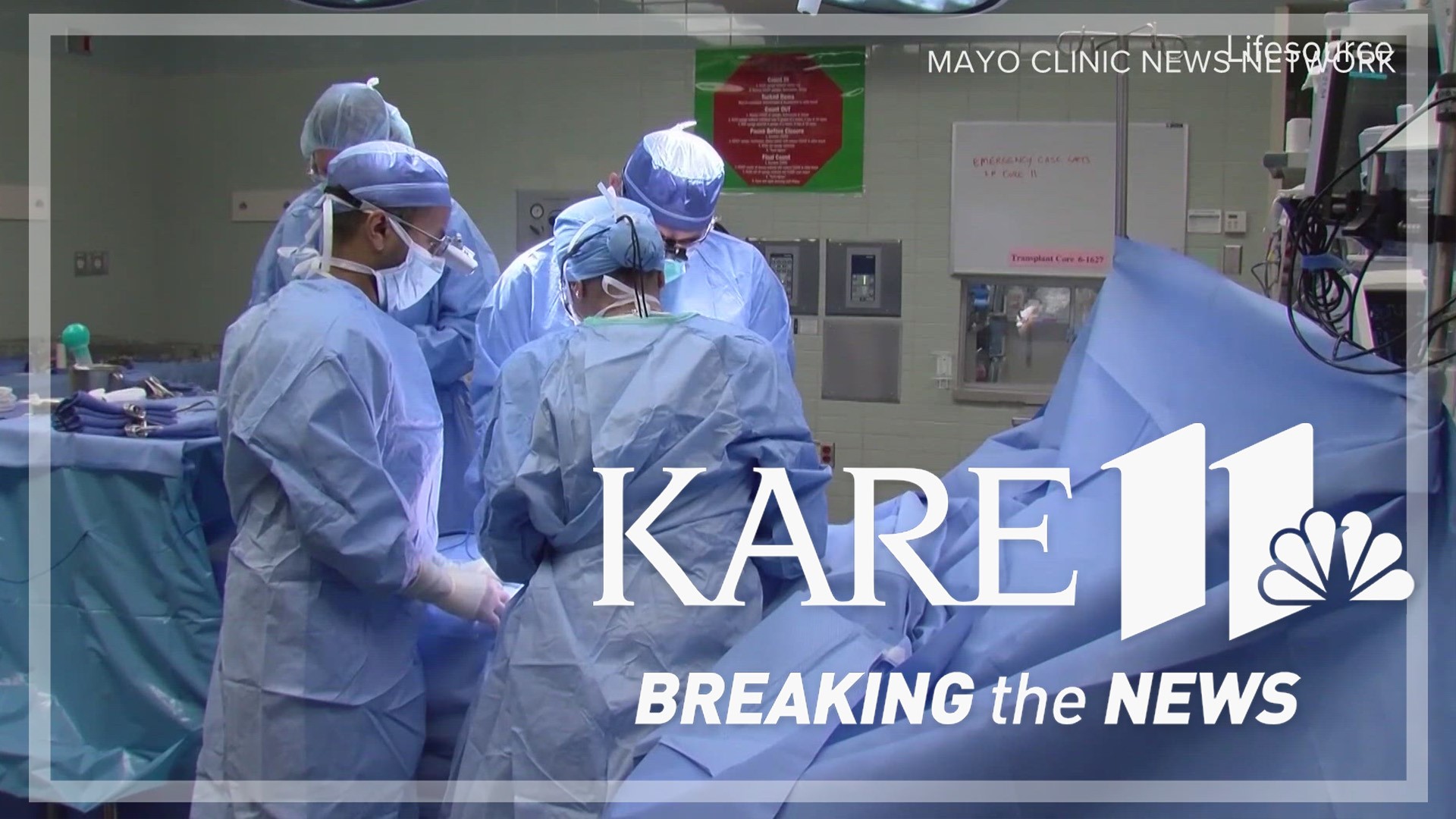MINNEAPOLIS — Two Minnesota health systems are launching specialized surgical units that will allow them to recover organs directly from the bodies of donors.
The Mayo Clinic and M Health Fairview have partnered with LifeSource, the regional organ procurement organization, to create donor care units at the Mayo and the University of MInnesota Medical Center.
M Health Fairview and Life Source marked the occasion Monday afternoon with a ceremony on the University of Minnesota medical campus. It featured 2,000 pinwheels planted in a garden, symbolizing 2,000 donors who helped extend the lives of others through transplants.
"This really is an effort to centralize organ donation, and kind of put the expertise in one place and bring the donors to the donor hospital versus taking the donor team and going out to a hospital where a donor is," Dr. Andrew Adams, a University of Minnesota Medical School professor and transplant surgeon, told KARE.
"This is a way to help maximize the number of organs that can be transplanted per donor. In some ways it's the care of the donor, the expertise on how to care for someone who's brain dead who's waiting for organ donation after they've consented to do that, or their family has."
Kelly White, the CEO of LifeSource, said that moving donors’ bodies to central locations will shorten the time transplant patients wait for a match and lead to higher quality organs.
"There are 2,300 people across Minnesota, North Dakota and South Dakota are waiting for a life-saving transplant. So, the idea behind this is when we have better processes, better quality, higher efficiency, we'll be able to recover more organs for transplantation," White told KARE.
She said LifeSource will continue to recover organs at hundreds of hospitals across the nation and deliver them to transplant teams. But the Donor Care Units will add a new dimension. It will also shorten waiting times for families of the donors.
"It's hard to lose their loved one and then wait maybe 24 to 48 hours before we can move forward with donation. That process is so critical for us because we're working on organ health and we're also working on placement," White explained.
"And finding the right match can take a decent amount of time, so we believe with this we really can shorten that time."
Dr. Andrews and White said some hospitals deal with organ donors only once every few years, while others see more of them.
"Donor families can always choose to have their donor remain where they are, but around the country most donor families are open to this idea because it’s a way we can maximize the gift the donor is giving, expand as many organs as possible for transplantation."
The donor care units will accept wholly intact donors' bodies, which will speed up the types of specialized testing required to know whether any viable organs can be transplanted.
"Once they’re authorized for donation, and they are declared brain dead, then that’s when we would initiate the transfer process," White explained.
"They will stay on a ventilator, they will stay on all the medication, so we can really ensure we’ve got organ health management and smooth process for that donor."
One of those who spoke at Monday's ceremony was Heather Johnson, whose son Keegan received a life-saving liver transplant when he was two and a half years old.
She eventually connected to the family of the teenage girl who saved Keegan by deciding to donate before she died. That family has been able to meet Keegan and get updates on how he's thriving with his new liver.
Johnson quoted from a letter she wrote to the donor's parents.
"In your darkest hour you made the decision that would ultimately help a little boy survive a disease that would have taken his life."

